
Johann Daniel Elster (born 16 September 1796 in Benshausen, died 19 December 1857 in Wettingen) was a German music professor and choirmaster. [1]

Johann Daniel Elster (born 16 September 1796 in Benshausen, died 19 December 1857 in Wettingen) was a German music professor and choirmaster. [1]
Johann Daniel Elster was the son of a hammer smith. He received his first music lessons in his hometown. In 1809, Elster attended grammar school in Freiberg.
Elster also studied theology in Leipzig and in 1816 was a member of the "Corps compatriot Franconia Leipzig". He continued his studies in Jena, but later moved to South America and joined Simón Bolívar's liberation movement. He later returned to Europe and moved to Würzburg where he continued his studies. Early 1822 he travelled to Greece with other Philhellenes to fight with the Greeks in the Greek War of Independence. He took part in the bloody Battle of Peta (July 1822) where many Philhellenes were killed. [2]
In 1823 he moved to Basel through Smyrna and France, and gained his first job as a piano teacher. Shortly thereafter, he received an appointment to the Lenzburg teacher training institute. He received a teaching post in Baden in 1825 and in 1826 founded the first Baden male choir. In 1827, after learning of his father's death, he moved back home.
In 1834 Elster began to complete the "Richard und Blondel" opera, which premiered in December 1835 at the Meininger Theater. In 1839 he received a job as a theater bandmaster in Zurich. He died on 19 December 1857 from a liver disease. [3] [4] [5]

Johann Peter Hebel was a German short story writer, dialectal poet, Lutheran theologian and pedagogue, most famous for a collection of Alemannic lyric poems and one of German tales.
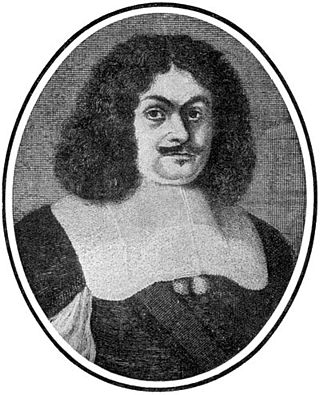
Andreas Gryphius was a German poet and playwright. With his eloquent sonnets, which contains "The Suffering, Frailty of Life and the World", he is considered one of the most important Baroque poets of the Germanosphere. He was one of the first improvers of the German language and German poetry.
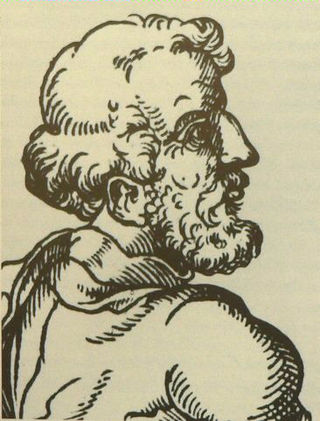
Jacob Micyllus, was a German Renaissance humanist and teacher, who conducted the city's Latin school in Frankfurt and held a chair at the University of Heidelberg, during times of great cultural stress in Germany.
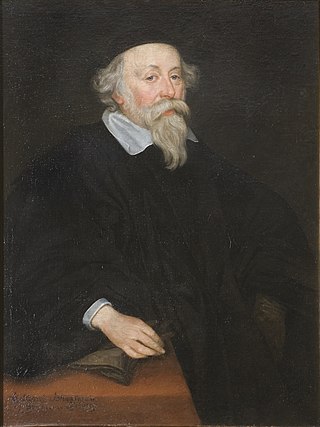
John Casimir, Count Palatine of Zweibrücken-Kleeburg was the son of John I, Count Palatine of Zweibrücken and his wife, Duchess Magdalene of Jülich-Cleves-Berg. He was married to Catherine of Sweden and was the founder of a branch of Wittelsbach Counts Palatine often called the Swedish line, because it gave rise to three subsequent kings of Sweden, but more commonly known as the Kleeburg line.
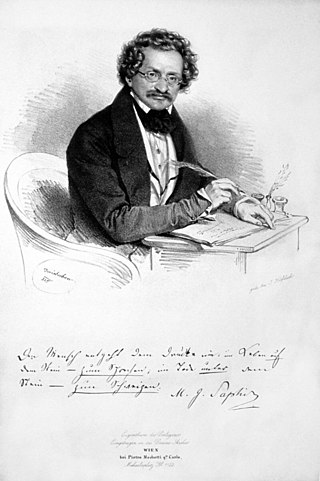
Moritz Gottlieb Saphir, born Moses Saphir was an Austrian-Jewish satirical writer and journalist.
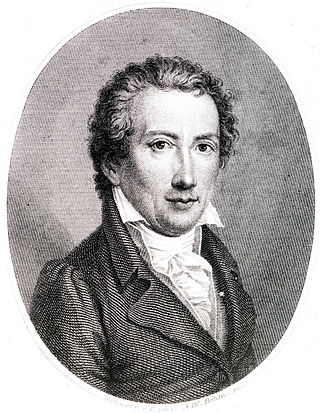
Johann Friedrich Rochlitz was a German playwright, musicologist and art and music critic. His most notable work is his autobiographical account Tage der Gefahr about the Battle of Leipzig in 1813 — in Kunst und Altertum, Goethe called it "one of the most wondrous productions ever to have been written". A Friedrich-Rochlitz-Preis for art criticism is named after him — it is awarded by the Leipzig Gesellschaft für Kunst und Kritik and was presented for the fourth time in 2009.

Christian Felix Weiße (1726–1804) was a German writer and pedagogue. Weiße was among the leading representatives of the Enlightenment in Germany and is regarded as the founder of German children's literature.

Bernhard III, Margrave of Baden-Baden inherited in 1515 part of his father's margraviate of Baden. He ruled his part from 1515 until 1536.
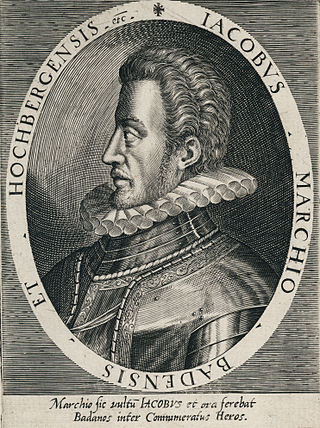
Margrave James III of Baden-Hachberg was margrave of Baden-Hachberg from 1584 to 1590 and resided at Emmendingen. He converted, in 1590, from Lutheranism to the Roman Catholic confession, causing some political turmoil.

Johann Daniel Schöpflin was a professor of history, rhetoric and law at the University of Strasbourg. He was one of Johann Wolfgang von Goethe’s teachers.

Johann Baptist Pflug was a German genre painter.

Gottlob Friedrich Steinkopf was a German landscape painter in the Classical style.
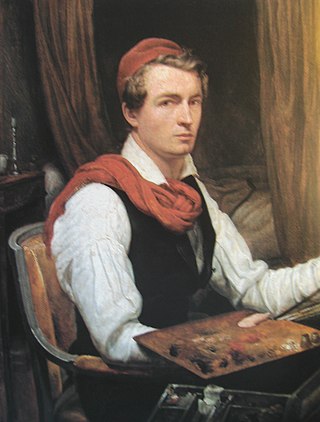
Friedrich Heinrich Ludwig Krevel, known as Louis Krevel was a German portrait painter of the Biedermeier period.
Daniel Schiebeler was a German writer, poet, librettist and Protestant hymnwriter. He wrote librettos for operas and oratorios, set by composers such as Georg Philipp Telemann, Johann Adam Hiller and Carl Philipp Emanuel Bach.
Johann Baptist Henneberg was an Austrian composer, pianist, organist and Kapellmeister.
Ernst Heinrich Anton Pasqué was a German operatic baritone, opera director, theatre director, writer and librettist.
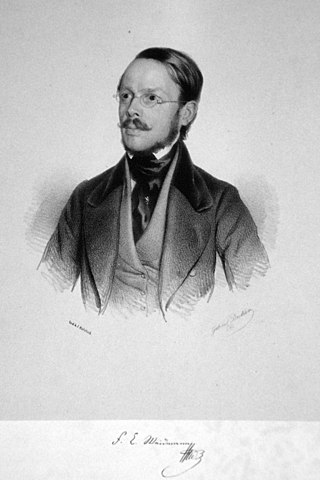
Franz Carl Weidmann was an Austrian writer, actor and journalist.

Adolf Bäuerle (real name Johann Andreas Bäuerle was an Austrian writer, publisher and main representative of the Alt-Wiener Volkstheater.
Johann Theodor Mosewius also Johann Theodor Mosevius was a German operatic bass, choirmaster and music director of the University of Wroclaw.

Johann (Nepomuk) Aloys Miksch ; sometimes spelled Mie(c)ksch or Johannes) was a Bohemian singer, (tenor) and singing teacher.